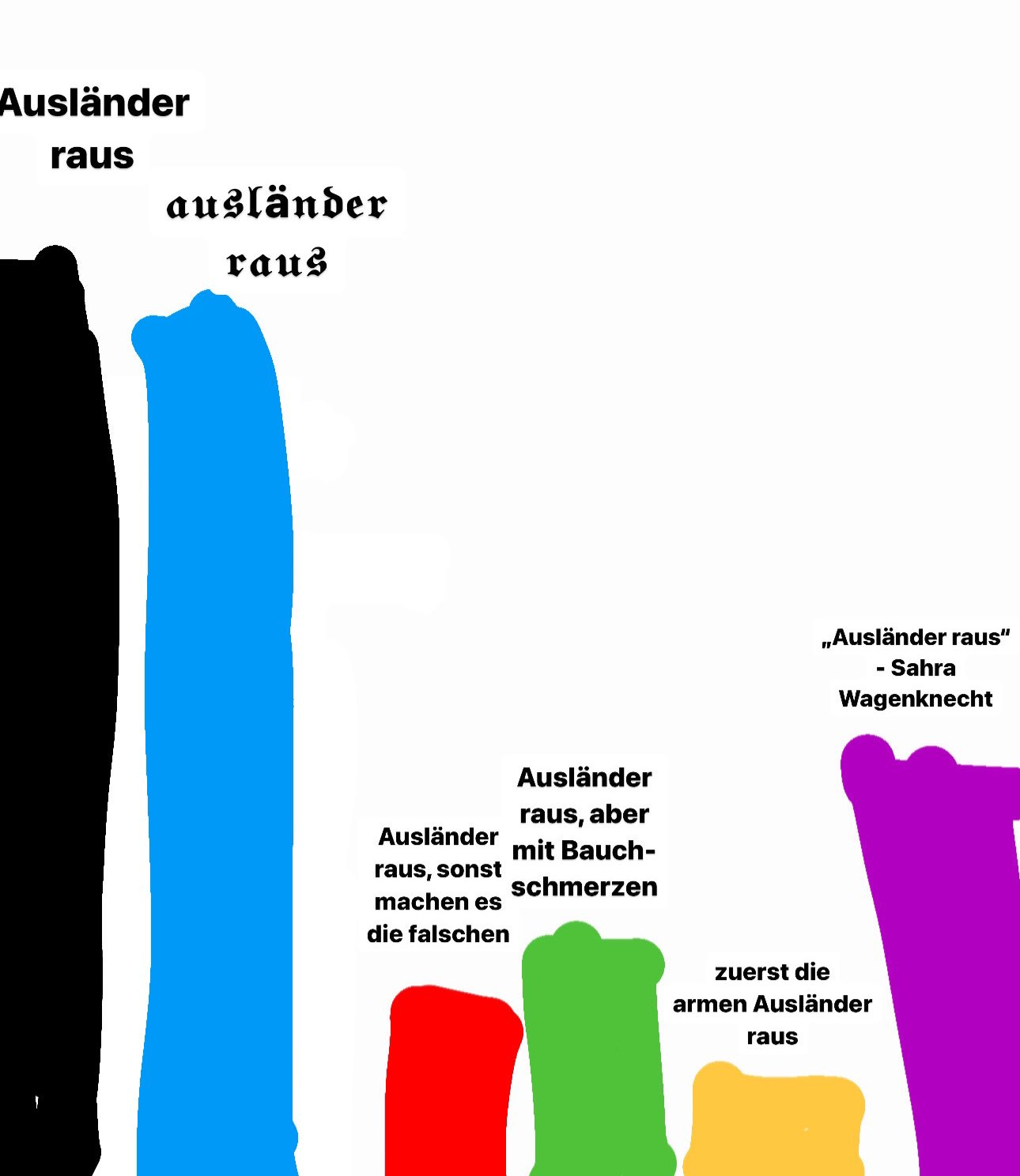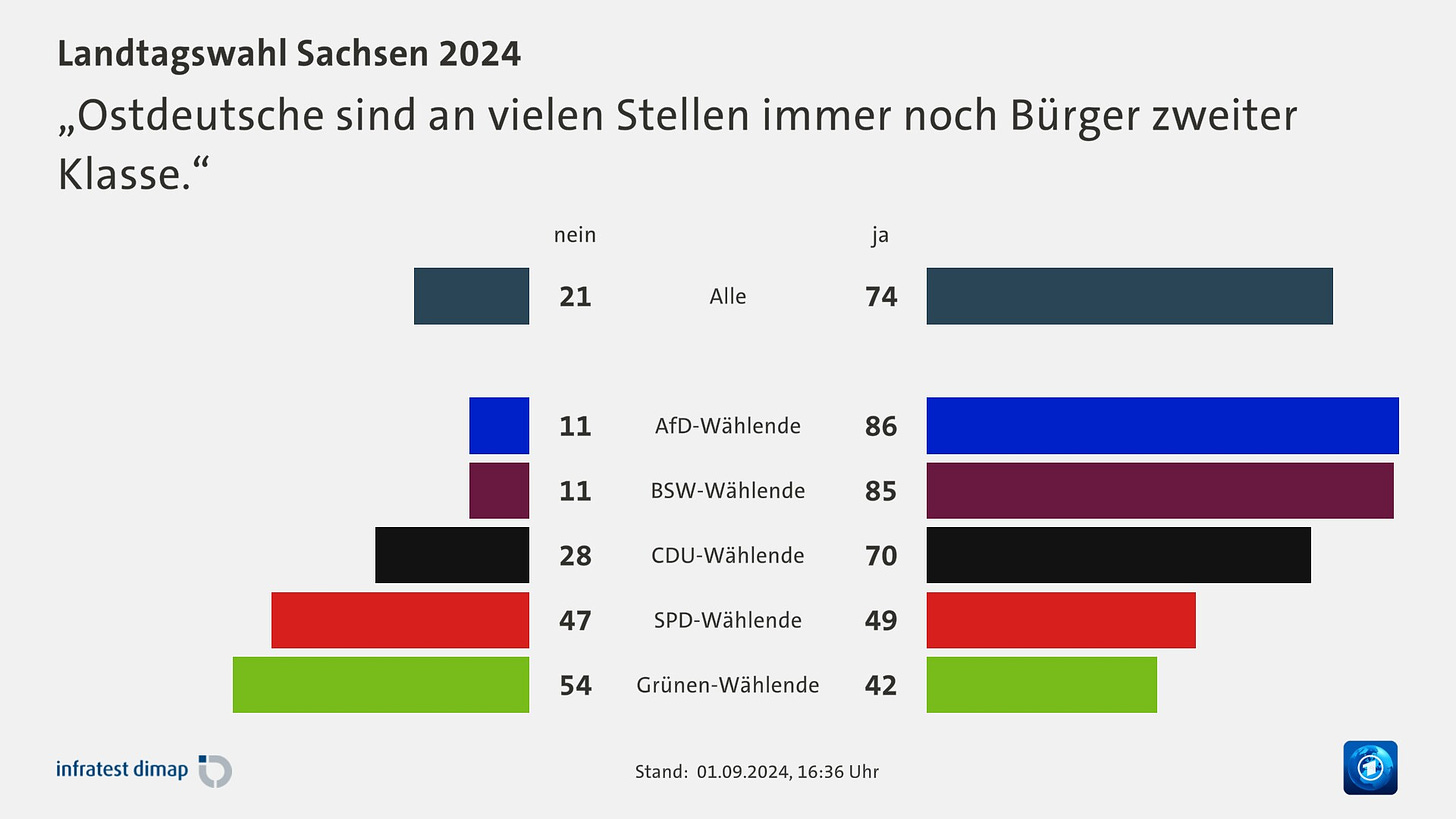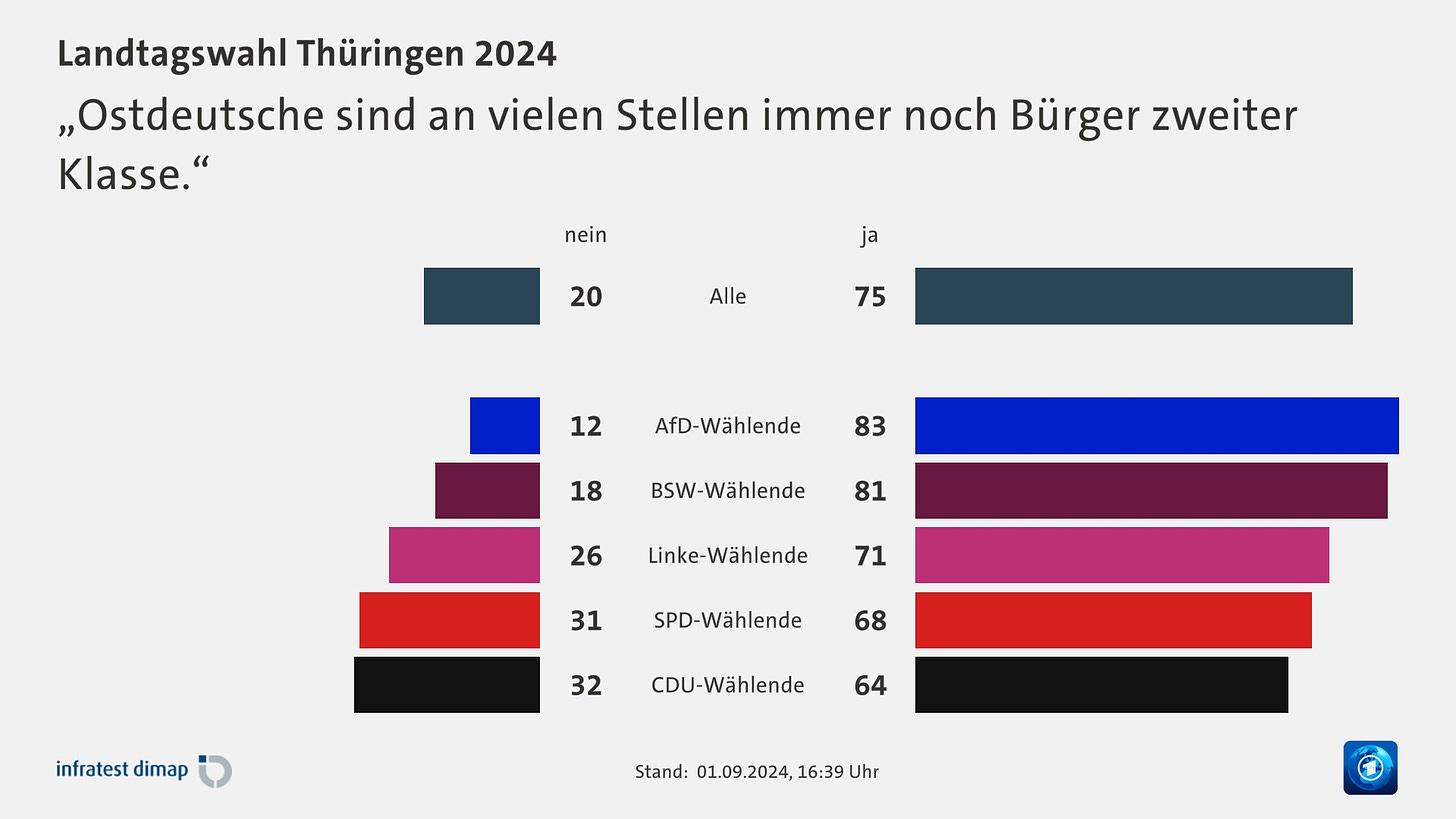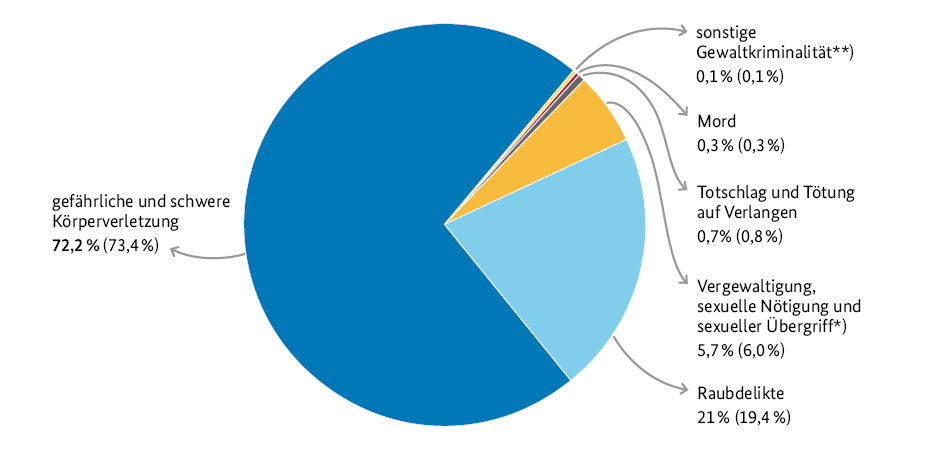Like reading The ‘Schland for free?
Anyone couching recent state elections in Saxony and Thüringen1 in Nazi throwbacks either doesn’t know history or forgot that it’s illegal in Germany to relativize the Holocaust. The Alternative for Germany, especially in those states, are far-right extremists and national-conservative populists, but they aren’t the second coming of the Third Reich. Thüringen’s history teacher-turned-real life Boy from Brazil Björn Höcke comes close, though — doubling down on umlauts should have been an early warning sign.
If there is a parallel, it’s that neither the Nazis nor the AfD came out of nowhere, no matter how much many others might wish they did. Never mind a hasty dissolution and arrogant absorption of former East Germany that, in real and imagined terms, left many there feeling like second-class citizens — the Ossis are obviously just dumb and racist and can’t understand democracy. No matter they’re the ones who put their lives on the line to replace the SED regime with some kind of — oh, right — democracy.
Perhaps the gulf between the DDR’s aspirations of governance and the BRD’s imposition of its governance is part of the problem.2 Na?
Sure, the former East has never come full circle dealing with its double-whammy authoritarian impulses, but it’s not like the former West has done much better. The remnants of Nazism just got swept under the rug of Cold War necessity and a lot of that has been spilling out of the edges ever since. Who else but the Germans to besserwisser their neighbor on how to do democracy korrekt.
More recently, years of Merkeling everything from transport to schools to healthcare — across the country, but particularly in the former East — has inevitably led to a rich country slowly falling apart. Schwarze Null über alles is no way to run a major economy with domestic and foreign responsibilities. With a European Union made largely in Germany’s fiscal image, growth is scant and illiberalism creep is rife. That’s one export Made In Germany™ should maybe not be so proud of.
Add a decade-long refugee boom on top of that — for which a society that’s told itself it is “good” slowly discovers it is, in fact, culturally, financially, and politically underprepared and ill-equipped — and some high-profile random attacks ripe for media sensationalism and you’ve got yourself a fine recipe for ruin. Violent crime does not look to have budged much, but when your high-minded officials are “plausibly” and “presumably” blaming crime partly on the increase in the “proportion of non-Germans in society as a whole” why should voters think differently?
All of that, however, is just part of the cosmic radiation background of the Teutonic Imaginary. The best the so-called respectable spectrum of German Officaldom can come up with is pretending that millions of German voters don’t exist. All this talk of keeping up a “brandmauer” against the AfD comically overlooks the fact that it’s not single-digit 2013 anymore. When upwards of 30% of your electorate, in places, are buying what the far right is selling — and not only out of protest, but conviction — you have to start asking yourself if that firewall is for them or for you.
Adding to the AfD tally those of the gateway drug Christian Democrats and the narcissist new-left Sahra Wagenknecht, around 70% of voters in Saxony and Thüringen prefer a nationalist or national-conservative party over the “neue Fantasie” of the centrist-liberal coalition that tenuously runs the country from Berlin. That is not to say, as many bad takes have, that the Social Democrats, Greens, and Free Democrats “lost”; it was never theirs to win. However, it does reflect how ideologically bankrupt they are and how ungovernable Germany is becoming.
Austerity pathology and more than a decade of GroKo have not aged well. Yet the Ghost of Schäuble Past continues to haunt, as the weird economics of German liberalism look set to hand German illiberalism a twofer win. Proposed spending cuts and freezes will surely provide further breeding ground for popular resentment, while strangling Ukraine to the delight of both the AfD and BSW.
Woefully short on ideas and increasingly detached from any constituency except itself, German Officialdom’s best counter to Germany’s renewed love affair with authoritarianism is authoritarianism itself: Just ban it all. That’s maybe OK against a couple of bald guys playing RPG Rambo in the back of some dank kneipe somewhere deep in the ‘Schland, but not so much when millions of voters are saying you suck listen up.
Another better parallel to the past would be asking yourself how it went the last time the liberal establishment tried to ban a major far-right party:
When in doubt, cross it out. The country that won’t ban the combustion engine and attacks the Greens for largely false accusations of wanting to take away all your fun things has, in fact, a serious prohibition addiction. Lacking progressive ideas and historically suspicious of bold initiative, the intuition of German Officialdom is simply to get rid of problems rather than solve them. You know, like Denazification.
It’s a cynical sleight of hand, whereby saying you’re against something allows you to adopt the very thing you say you’re against. The AfD does not need to be in power to be powerful. In saying the quiet part out loud, they’ve succeeded in normalizing the dehumanization and repression of whole groups of people to the extent that everyone else can, too.

Not that German Officialdom needs any help; the AfD is just its most glaring affect. As it distances itself from its own domestic extremists, Germany’s entire political establishment is tightly hugging its favorite foreign extremists — and doesn’t seem to see the problem therein. Whatever the penalty would be for saying that starving two million people is “right and moral,” it’s probably less than that for protesting such barbarity using the same words.
Under the auspices of a three-way federal government that says it is, respectively, for solidarity (SPD), human rights (Greens), and liberalism (FDP), the legislative and judicial underpinnings of German rule of law have been weaponized to attack, defame, intimidate, and prosecute those who think Israel’s ethno-nationalism is in contravention of fundamental democratic principles and Israel’s systematic efforts to deny Palestinian sovereignty undermine the norms and protections that arose — like Israel itself — out of the ashes of the Holocaust.
Not for the first time, Germany is banning words, slogans, and symbols. It is threatening deportation and withholding and possibly even revoking citizenship, all the while itself engaging in antisemitic tropes that can’t tell the difference between Israel and Jews — so of course Israel criticism can only be, by definition, antisemitic. Do tell us, Frau Dr. Knobloch, wherever could all the xenophobia be coming from?
Certainly not Berlin, which somehow gets to maintain its “multicultural and hedonist” mythology despite months of police beat downs against a particular kind of multicultural protester. I guess if you never leave Kreuzberg and don’t get to vote, you don’t have to reckon with just how conservative the city actually is.
If (West) Germany’s response to its own fatal failures during the 1972 Olympics hostage crisis was widespread deportation of legal residents guilty only of being Arab, there is little reason to think the response will be any different now. Only in Germany is there no irony in pursuing policies of reactionary nationalism in the knee-jerk effort of trying to beat the reactionary nationalists at their own game — all the while hawking the same leaky box of banned things.
It is little surprise that those lacking ideas of their own fail to understand how hard it is to kill them. You only make them stronger. Banning a party, the personified sum of ideas, is about as counterproductive as bombing a terrorist group.
In the end, all you’ll accomplish is getting accused of genocide. Though saying so might get you banned, as well.
Yes, I know it’s Thuringia in English, but that just sounds silly.
Same as 1.







